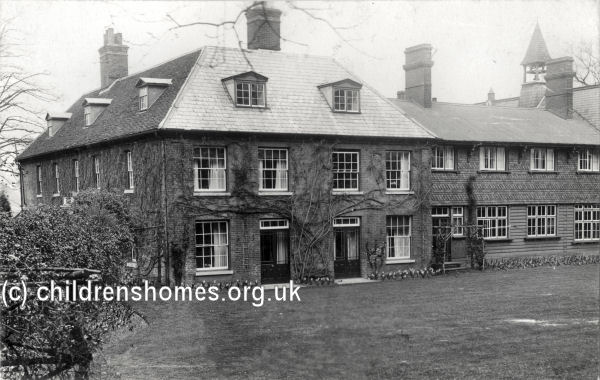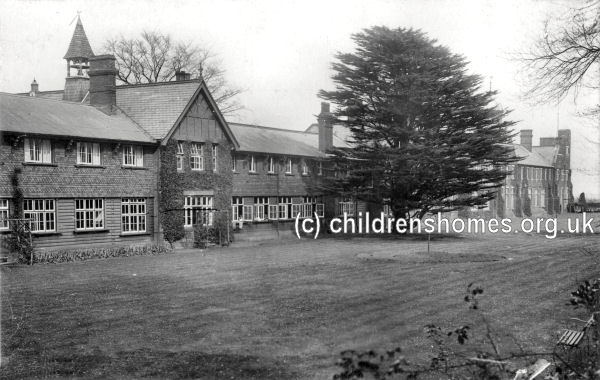Hollesley Bay Labour Colony / Borstal, Woodbridge, Suffolk
Hollesley Bay Colonial College and Training Farm, at Hollesley, near Woodbridge, was founded by Robert Johnson in 1887 as a training establishment for young men who were going overseas to work in colonies of the British Empire.
In 1905, after the establishment had foundered financially, the site was bought by American philanthropist Joseph Fels and placed at the disposal of the Central Committee of the London Unemployed Fund. Renamed the Hollesley Bay Labour Colony, it was used to train unemployed Londoners in farm work.

Hollesley Bay Colony main building, Woodbridge, early 1900s. © Peter Higginbotham

Hollesley Bay Colony main building, Woodbridge, early 1900s. © Peter Higginbotham
In 1938, the premises were purchased by the Prison Commissioners as an 'open' Borstal Institution for up to 250 boys, still retaining the name Hollesley Bay Colony.
The main employment of the borstal inmates was agricultural work on the institution's 1600 acres of farmland. Around 300 acres were devoted to the cultivation of apples, pears, plums and soft fruits such as raspberries and blackcurrants. There were also glasshouses for the raising of young plants, tomatoes and cucumbers which were sold to the general public via local markets and the colony's own produce shop. Cattle, pigs, sheep and poultry were kept, and the colony was self-sufficient in vegetables, milk and eggs, with any surplus going to other prison establishments of or local markets.
Another important activity was building, with their construction work including accommodation for themselves, houses for the officers, and a large hall which served as a gymnasium, cinema, assembly and concert hall.
The Irish writer Brendan Behan spent time at Hollesley Bay after being arrested for IRA activities in 1939. He later described his experiences in the book Borstal Boy.
After the Second World Ward, the colony had its own Army Cadet Force Unit and attended an annual training camp. A drum and bugle band was also formed.
By the 1950s, training classes were provided in trades such as bricklaying, carpentry and joinery, cooking, boot and shoe making and repairing, painting and decorating, horticulture, motor vehicle maintenance, and blacksmithing.
After twelve months at the colony, inmates whose conduct had been satisfactory received home leave for five days. up until 1960, those leaving were liable to be called up for national service, while those proving unfit were found work by the establishments aftercare association.
In 1983, the site became a Youth Custody Centre, then in 1988 was redesignated as a Young Offenders' Institution. It now houses a mix of young offenders and adult prisoners.
Records
Note: many repositories impose a closure period of up to 100 years for records identifying individuals. Before travelling a long distance, always check that the records you want to consult will be available.
- London Metropolitan Archives, 40 Northampton Road, London EC1R OHB.
Bibliography
- Fox, Lionel W The English Prison and Borstal Systems (1952, Routledge & Kegan Paul)
- Behan, Brendan Borstal Boy (1958, Hutchinson)
- Hutton, John Portland Borstal Institutution Miscellany Volume 2 (2018)
- Lodge, Jeremy Lowdham Grange. Borstal! (2014)
Links
- None identified at present.
Except where indicated, this page () © Peter Higginbotham. Contents may not be reproduced without permission.



